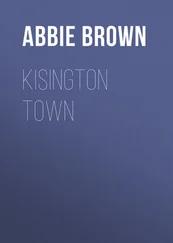Eric Brown - Kéthani
Здесь есть возможность читать онлайн «Eric Brown - Kéthani» весь текст электронной книги совершенно бесплатно (целиком полную версию без сокращений). В некоторых случаях можно слушать аудио, скачать через торрент в формате fb2 и присутствует краткое содержание. Город: Oxford, Год выпуска: 2009, ISBN: 2009, Издательство: Solaris, Жанр: Фантастика и фэнтези, на английском языке. Описание произведения, (предисловие) а так же отзывы посетителей доступны на портале библиотеки ЛибКат.
- Название:Kéthani
- Автор:
- Издательство:Solaris
- Жанр:
- Год:2009
- Город:Oxford
- ISBN:9781844167128
- Рейтинг книги:5 / 5. Голосов: 1
-
Избранное:Добавить в избранное
- Отзывы:
-
Ваша оценка:
- 100
- 1
- 2
- 3
- 4
- 5
Kéthani: краткое содержание, описание и аннотация
Предлагаем к чтению аннотацию, описание, краткое содержание или предисловие (зависит от того, что написал сам автор книги «Kéthani»). Если вы не нашли необходимую информацию о книге — напишите в комментариях, мы постараемся отыскать её.
Kéthani — читать онлайн бесплатно полную книгу (весь текст) целиком
Ниже представлен текст книги, разбитый по страницам. Система сохранения места последней прочитанной страницы, позволяет с удобством читать онлайн бесплатно книгу «Kéthani», без необходимости каждый раз заново искать на чём Вы остановились. Поставьте закладку, и сможете в любой момент перейти на страницу, на которой закончили чтение.
Интервал:
Закладка:
I pressed play and stared at the screen.
Lucy smiled out at me, surrounded by passing humans in one-piece suits. She appeared to be in some kind of bar. It reminded me for all the world of a scene from one of the space opera shows I’d watched as a kid.
Davey sat beside her, an arm around her shoulders.
“Dad, everyone in the Fleece—if you’re still drinking there! Silly question! Where else would you be? Well, we’re aboard an FTL cruiser heading for Kalopia VII, to bring the word of the Kéthani to a race of just post-industrial humanoids. We’re well, and looking forward to the posting.” She talked about their work for a few minutes, then turned and looked into Davey’s eyes. “We’re very happy. It’s… I can’t begin to describe how amazing it is out here… Look, we’ve got to rush—can’t miss the last post. I’ll be in touch again soon. Love you, Dad. Take care!”
Davey waved and smiled, and Lucy reached out and cut the recording.
I shook my head as I passed Dan the screen. “My God… It doesn’t seem two minutes since the wedding.”
“Four years, Khal,” Dan said.
We were silent for a while after that, each of us lost in our own thoughts.
I looked round the bar. It was quiet, which was not surprising these days. Oxenworth was quiet. Half the houses stood empty. Not everyone had gone to the stars; many people had moved to the cities, replacing those who had decided to leave Earth.
Stuart Kingsley said, as if reading my thoughts, “I was in Leeds yesterday, and do you know… It seemed busy, but I was in a bookshop and I happened to look at a local history book, and a photograph of the Headrow in 2006. The crowds! There were thousands of people in the streets…”
Richard Lincoln finished his pint and said, “The world’s population has fallen by five per cent in the past five years, and the predictions are that it’ll continue like that for the foreseeable future.”
Elisabeth shook her head. “So… I’m no mathematician… how long before the world is empty?”
Stuart said, “Roughly a century, Lis. If the exodus continues at this rate.”
Ben looked at me and said, “What is it, Khal?”
I must have appeared to be miles away. I shook myself and said, “I don’t know… but for the past couple of years I’ve felt… I find it hard now quite how to describe the feeling…” I shrugged. “I know , on some subconscious level, that all I’ve taken for granted, all that’s familiar, is drawing to some kind of close.”
“Things are changing,” Jeffrey said. “Little by little, inevitably. Nothing is as it was before. Our way of life, which we’ve taken for granted for so long…”
That gave us pause for thought. We stared into our drinks, for once collectively silenced.
Something that Lucy had said in her communiqué from the stars repeated itself in my head. Dad, everyone in the fleece—if you’re still drinking there! Silly question!
I felt, oddly, very old then, as if we were the preservers of a way of life that was soon to change. I had the feeling that we were treading water, waiting… All we needed was something, or someone, to urge us on.
We didn’t know what that might be, at the time.
We didn’t know that we were waiting for a catalyst, and that that catalyst should prove to be a man called Gregory Merrall.
TEN
THE FAREWELL PARTY
Gregory Merrall had been part of our group for just three months by the time of the Farewell Party, though it seemed that we had never been without his quiet, patriarchal presence. He was a constant among the friendly faces who met at the Fleece every Tuesday evening, our confidant and king, some might even say our conscience.
I remember his arrival amongst us. It was a bitter cold night in early November and the village had been cut off for two days due to a severe fall of snow. When I saw him stride into the main bar—an anachronistic figure in Harris tweeds and plus fours—I assumed he was a stranded traveller.
He buttressed the bar and drank two or three pints of Landlord.
There were nine of us gathered about the inglenook that night, and as each of us in turn went to the bar to buy our round, the stranger made a point of engaging us in conversation.
“There are worse places to be stranded in than Oxenworth,” I said when it was my round. “The Fleece is the best pub for miles around.”
He smiled. “I’m not stranded—well, not in that sense,” he said, offering his hand. “Merrall, Gregory Merrall.”
“Khalid Azzam,” I told him. “You’ve moved to Oxenworth?”
“Bought the old Dunnett farm on the hill.”
I knew immediately—and I often look back and wonder quite how I knew—that Merrall would become part of our group. There was something, about him that inspired trust. He was socially confident without being brash and emanated an avuncular friendliness that was endearing and comforting.
I noticed that he was nearing the end of his pint. “It’s my round,” I said. “Would you like to join us?”
“Well, that’s very kind. I don’t mind if I do.”
So I introduced him to the group and he slipped into the conversation as if the niche had been awaiting him: the niche, I mean, of the quiet wise man, the patriarchal figure whose experience, and whose contemplation of that experience, he brought to bear on our varied conversations that evening.
It was a couple of weeks later, and I’d arrived early. Richard Lincoln and Andy Souter were at the bar, nursing their first pints. Richard was in his late sixties and for a second I mistook him for Gregory.
He frowned at my double take as he bought me a pint.
“Thought for a second you were Merrall,” I explained.
“The tweeds,” he said. “Bit out of fashion.” I’d always thought it paradoxical that someone who worked so closely with the Kéthani regime should adopt so conservative a mode of dress.
We commandeered our table by the fire and Andy stowed his cornet case under his stool. Andy was a professional musician, a quiet man in his late thirties with a cornetist’s pinched top lip. He conducted the local brass band and taught various instruments at the college in Bradley. He was the latest recruit—discounting Merrall—to our Tuesday night sessions. He ran a hand through his ginger mop and said, “So, what do you think of our Gregory?”
“I like him a lot,” I said. “He’s one of us.”
Richard said, “Strange, isn’t it, how some people just fit in? Odd thing is, for all he’s said a lot, I don’t know that much about him.”
That gave me pause. “Come to think of it, you’re right.” All I knew was that he was from London and that he’d bought the old farmhouse on the hill.
Andy nodded. “The mysterious stranger…”
“He’s obviously well travelled,” Richard said.
That was another thing I knew about him from his stories of India and the Far East. I said, “Isn’t it odd that although he’s said next to nothing about himself, I feel I know him better than I do some people who talk about themselves nonstop.”
For the next hour, as our friends hurried in from the snow in ones and twos, conversation centred around the enigmatic Mr. Merrall. It turned out that no one knew much more than Richard, Andy and me.
“Very well, then,” said Doug Standish, our friendly police officer, “let’s make it our objective tonight to find out a bit more about Gregory, shall we?”
Five minutes later, at nine o’clock on the dot— as was his habit—Gregory breezed in, shaking off the snow like a big Saint Bernard.
He joined us by the fire and seconds later was telling us about a conversation he’d had with his bank manager that morning. That provoked a round of similar stories, and soon our collective objective of learning more about our new-found friend was forgotten in the to and fro of bonhomie and good beer.
Читать дальшеИнтервал:
Закладка:
Похожие книги на «Kéthani»
Представляем Вашему вниманию похожие книги на «Kéthani» списком для выбора. Мы отобрали схожую по названию и смыслу литературу в надежде предоставить читателям больше вариантов отыскать новые, интересные, ещё непрочитанные произведения.
Обсуждение, отзывы о книге «Kéthani» и просто собственные мнения читателей. Оставьте ваши комментарии, напишите, что Вы думаете о произведении, его смысле или главных героях. Укажите что конкретно понравилось, а что нет, и почему Вы так считаете.












